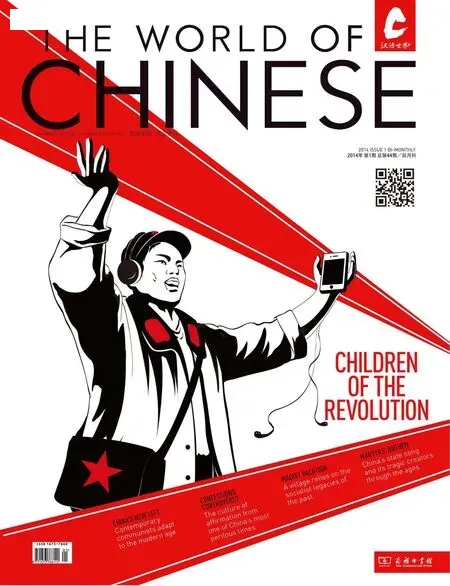WE HAVE BETRAYED THE REVOLUTION
WE HAVE BETRAYED THE REVOLUTION

Guests Are All Welcomed, 2013The figure in this painting is Neil Heywood who was famously poisoned by Gu Kailai, the wife of Bo Xilai.
Your work is often based on photographs, what kind of photo do you look for in a potential work?
I think about whether or not it can be changed into one of my paintings. My work needs an origin, and this origin allows me to continue. There are a lot of factors that keep me concentrated on a particular work. I can't completely exclude the inf l uence of photography from the story; all of these effects are comprehensive. Who you are, what your environment is like, your views, your tastes, your hobbies—all of these impact my judgment.
Your exhibition is “We have Betrayed the Revolution”. What do you mean by “revolution” and why did you name your gallery after it?
Over the past hundred years in China, the subject of revolution has been a never-ending one. I think it is an idea that seems unavoidable for people living here, as well as the entire culture. This includes interpretations and views on revolution—how the revolution is being used, its evolution, what happens in the end, and so on. It is a huge topic. Indeed, we always revise and amend the interpretation ofthe so-called revolution. In my opinion, the meaning of these amendments is the acceptance of current power distribution and resource allocation.

Li Songsong (李松松)“Everyone knows the story; the important thing is the way you tell it,” says Beijing-born painter Li Songsong, 41. His works are based on magazines, books, TV, and even the internet—concentrating on some of the most important events in Chinese history and politics. The fi nal works tend to retain traces of the original image. However, the thick brush strokes and color work to maintain a certain distance between the fi nal work and the original image. His last exhibition “We Have Betrayed the Revolution” (我們?cè)?jīng)背叛了革命) portrays historical fi gures and events that, in the Chinese people's collective consciousness, provide a comprehensive sampling of his art.

We Have Betrayed the Revolution, 2013Wu Huawen (吳化文, left) was a military Chinese commander during the second Sino-Japanese war. He was famed for changing allegiances—moving from the Kuomintang to the Japanese puppet government, then back to the Kuomintang before finally joining the communists. Wang Jingwei (汪精衛(wèi), right) was a Chinese politician (also famed for changing allegiances). He was a high official of the Kuomintang who allied with the Communist Party for a brief time, and later signed peace treaties with the Japanese.

